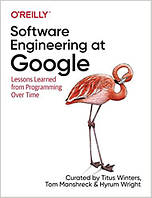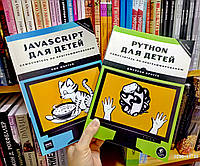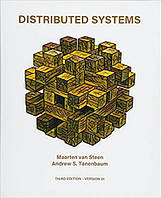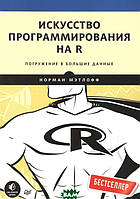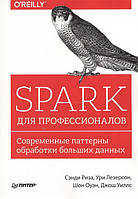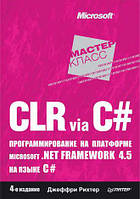
- Основные
- ТематикаЯзыки и системы программирования
- Язык изданияАнглийский
- Вид переплетаМягкий
- Тип поверхности бумагиМатовая
- Количество страниц600
- Год издания2020
- Тип полиграфической бумагиОфсетная
- ISBN978-1492082798
- СостояниеНовое
- Формат
- Длина24 см
- Ширина17 см
Today, software engineers need to know not only how to program effectively but also how to develop proper engineering practices to make their codebase sustainable and healthy. This book emphasizes this difference between programming and software engineering.
How can software engineers manage a living codebase that evolves and responds to changing requirements and demands over the length of its life? Based on their experience at Google, software engineers Titus Winters and Hyrum Wright, along with technical writer Tom Manshreck, present a candid and insightful look at how some of the world’s leading practitioners construct and maintain software. This book covers Google’s unique engineering culture, processes, and tools and how these aspects contribute to the effectiveness of an engineering organization.
You’ll explore three fundamental principles that software organizations should keep in mind when designing, architecting, writing, and maintaining code:
- How time affects the sustainability of software and how to make your code resilient over time
- How scale affects the viability of software practices within an engineering organization
- What trade-offs a typical engineer needs to make when evaluating design and development decisions.
From the Preface
This book is titled Software Engineering at Google. What precisely do we mean by software engineering? What distinguishes “software engineering” from “programming” or “computer science”? And why would Google have a unique perspective to add to the corpus of previous software engineering literature written over the past 50 years?
The terms “programming” and “software engineering” have been used interchangeably for quite some time in our industry, although each term has a different emphasis and different implications. University students tend to study computer science and get jobs writing code as “programmers.”
“Software engineering,” however, sounds more serious, as if it implies the application of some theoretical knowledge to build something real and precise. Mechanical engineers, civil engineers, aeronautical engineers, and those in other engineering disciplines all practice engineering. They all work in the real world and use the application of their theoretical knowledge to create something real. Software engineers also create “something real,” though it is less tangible than the things other engineers create.
Unlike those more established engineering professions, current software engineering theory or practice is not nearly as rigorous. Aeronautical engineers must follow rigid guidelines and practices, because errors in their calculations can cause real damage; programming, on the whole, has traditionally not followed such rigorous practices. But, as software becomes more integrated into our lives, we must adopt and rely on more rigorous engineering methods. We hope this book helps others see a path toward more reliable software practices.
What This Book Isn’t
This book is not meant to cover software design, a discipline that requires its own book (and for which much content already exists). Although there is some code in this book for illustrative purposes, the principles are language neutral, and there is little actual “programming” advice within these chapters. As a result, this text doesn’t cover many important issues in software development: project management, API design, security hardening, internationalization, user interface frameworks, or other language-specific concerns. Their omission in this book does not imply their lack of importance. Instead, we choose not to cover them here knowing that we could not provide the treatment they deserve. We have tried to make the discussions in this book more about engineering and less about programming.
About the Author
Titus Winters is a Senior Staff Software Engineer at Google, where he has worked since 2010. Today, he is the chair of the global subcommittee for the design of the C++ standard library. At Google, he is the library lead for Google’s C++ codebase: 250 million lines of code that will be edited by 12K distinct engineers in a month. For the last 7 years, Titus and his teams have been organizing, maintaining, and evolving the foundational components of Google’s C++ codebase using modern automation and tooling. Along the way he has started several Google projects that believed to be in the top 10 largest refactorings in human history. As a direct result of helping to build out refactoring tooling and automation, Titus has encountered first-hand a huge swath of the shortcuts that engineers and programmers may take to “just get something working”. That unique scale and perspective has informed all of his thinking on the care and feeding of software systems.
Tom Manshreck is a Staff Technical Writer within Software Engineering at Google since 2005, responsible for developing and maintaining many of Google's core programming guides in infrastructure and language. Since 2011, he has been a member of Google's C++ Library Team, developing Google's C++ documentation set, launching (with Titus Winters) Google's C++ training classes, and documenting Abseil, Google's open source C++ code. Tom holds a BS in Political Science and a BS in History from the Massachusetts Institute of Technology. Before Google, Tom worked as a Managing Editor at Pearson/Prentice Hall and various startups.
Hyrum K. Wright is a Staff Software Engineer at Google, where he has worked since 2012, mainly in the areas of large-scale maintenance of Google's C++ codebase. Hyrum has made more individual edits to Google's codebase than any other engineer in the history of the company. He is a member of the Apache Software and an occasional visiting faculty member at Carnegie Mellon University. Hyrum received a PhD in Software Engineering from the University of Texas at Austin, and also holds an MS from the University of Texas and a BS from Brigham Young University. He is an active speaker at conferences and contributor to the academic literature on software maintenance and evolution.

